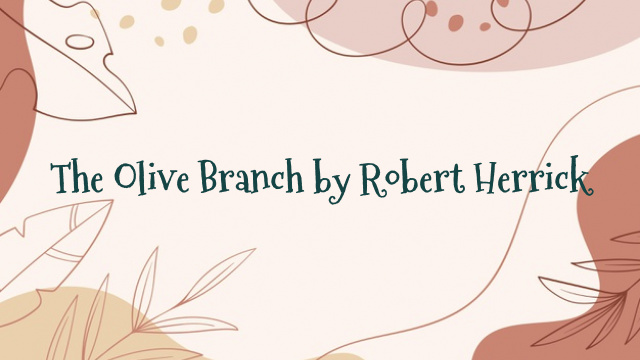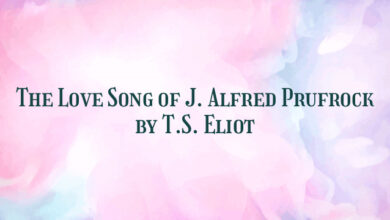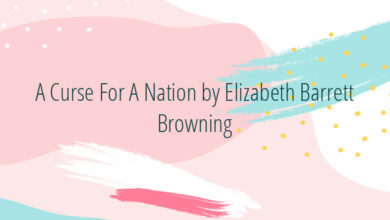
Poetry
The Olive Branch by Robert Herrick
Sadly I walk’d within the field,
To see what comfort it would yield;
And as I went my private way,
An olive-branch before me lay;
And seeing it, I made a stay,
And took it up, and view’d it; then
Kissing the omen, said Amen;
Be, be it so, and let this be
A divination unto me;
That in short time my woes shall cease,
And love shall crown my end with peace.




